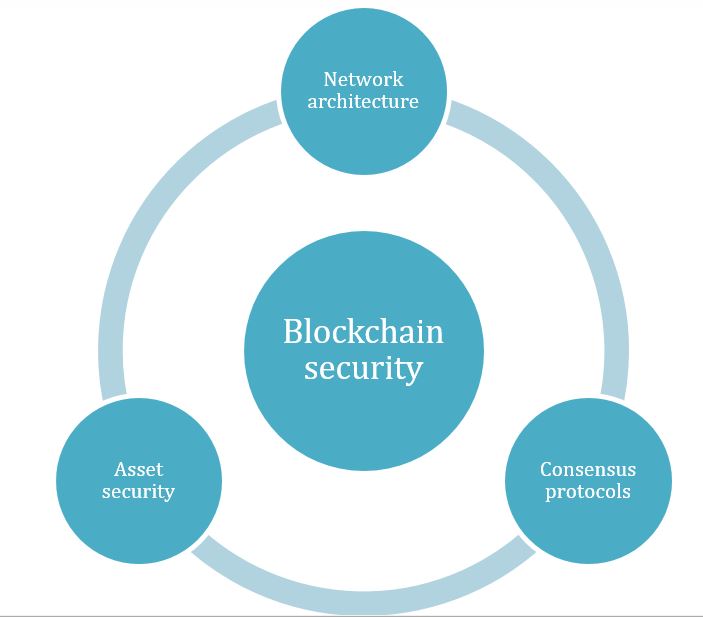
While solutions exist, blockchain security concerns still need to be addressed before the general public can trust this technology with its personal data.
One of the hottest and most intriguing technologies in the market today, also known as the backbone technology behind Bitcoin, is the blockchain technology. This can well be understood from the fact that since 2013 Google searches for the term “blockchain” have risen by a whopping 1900%.
Related Read: How Real Is The Blockchain Market Right Now?
This is because of blockchain’s potential to disrupt multiple industries and make processes more transparent, secure, democratic, and efficient. As a distributed ledger technology, blockchain may be more valuable than the currency it supports, but ensuring blockchain security is also not less significant.

Blockchain security: Network architecture
Security starts with the network architecture, and one of the first decisions to make in the establishment of a blockchain is its network architecture. Blockchains need communication to achieve the consensus on their ledger and list of verified transactions. It also needs communication to write and approve new transactions.
In such a communication, which occurs between nodes, each node maintains a copy of the ledger and also informs other nodes of any new information. Concerns around security arise when a node restricts the transmission of information, transmits incorrect information.
Another security concern is how to treat the uncommunicative or intermittently active nodes. Such nodes need to be identifiable and circumventable in order to maintain the integrity of the system.
Blockchain security: Consensus protocols
The process of consensus in blockchain transactions is purposely designed to take time, currently around 10 minutes. It is only after one to two hours that a transaction is considered fully verified.
Also Read: Applications Of Blockchain Technology In Energy Sector For Innovative Business Models
Such a delay is not computationally expensive but also makes the system vulnerable as a transaction that may initially seem to be verified may lose that status later. This makes blockchain a significant obstacle in fast-paced transactions, like financial trading.
Blockchain Security: Asset Security
Blockchain systems store data, such as possession of assets or shares involved in a transaction. Blockchain operators, therefore, need to resolve the problem of lost identification credentials, especially in the case of systems that manage physical assets.
Not just that, since blockchain is also about transactions, blockchain owners need to make decisions about when and how a verified transaction can be reversed.
While the decentralized approach of the blockchain technology definitely has some advantages from a security perspective, it does not entirely remove the possibility of a security breach.
Also Read: Blockchain For Small Business Enterprises In India
This technology has passed the test of time, and while we must appreciate its resilient security, we must take note of the operational lacuna to take advantage of this high-level technology.
(Disclaimer: This is a guest post submitted on Techstory by the mentioned authors. All thecontents in the article have been provided to Techstory by the authors of the article. Techstory is not responsible or liable for any content in this article.)
Image Source: trivia.id
About The Author:
 Naveen is currently the CEO at Allerin Tech Pvt Ltd. He is a seasoned professional with more than 20 years of experience, with extensive experience in customizing open source products for cost optimizations of large scale IT deployment. Naveen is a keynote speaker and thought leader in the area of IoT solutions, Machine learning and Block Chain Technology.
Naveen is currently the CEO at Allerin Tech Pvt Ltd. He is a seasoned professional with more than 20 years of experience, with extensive experience in customizing open source products for cost optimizations of large scale IT deployment. Naveen is a keynote speaker and thought leader in the area of IoT solutions, Machine learning and Block Chain Technology.
Specialties: Solution Design and consultancy , Data Science, Machine Learning, Deep Learning Enterprise Application Planning, Cost Optimization and Block Chain











